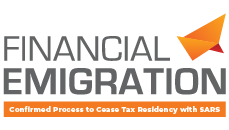The term “ordinarily resident” is not defined in South African legislation but has been interpreted by South African courts for almost a century when dealing with tax law matters. The South African Revenue Service (“SARS”), in 2002, released an Interpretation Note (“IN3”) that assisted taxpayers in understanding the term, and which considered case law as well as other factors in bringing about some clarity on the term.
On the 20th of June 2018, SARS released an update to IN3, being “issue 2”. The update deals slightly more in depth with the term “ordinarily resident” and also takes into account dual taxation agreements.
It must be noted that there are no significant amendments in the latest IN3, which makes the release somewhat odd, especially considering that no new specific case law has been added either.
This update may be partly due to the amount of media attention South African’s abroad have been receiving over the past year. This is worrying because SARS may be using this update as an opportune time to tighten the noose on those South Africans.
Amendments to IN3
Three amendments are noteworthy:
- The first being the inclusion of “employment and economic factors” into the list of factors upon which a person will be judged in terms of the ordinarily resident test. This is possibly a good sign for South African’s abroad, trying to confirm they are not ordinarily resident of South Africa as those South Africans are generally employed abroad and their centre of economic interests would thus in all probability be abroad too.
- The second noteworthy amendment is the inclusion of a person’s application for citizenship in another country. This amendment introduces a further requirement to prove your non-ordinarily resident status. Of course, this inclusion is only one of many which determine your status, however it portrays a significant shift in mindset in the burden of proof a taxpayer will need to meet before being considered non-ordinarily resident. In my opinion, SARS is attempting to increase the burden on the taxpayer.Furthermore, obtaining citizenship in another country comes with its own consequences, which has been dealt with in a previous article, and which should be taken note of: https://www.financialemigration.co.za/south-african-expats-is-your-south-african-passport-at-risk/.
- The third amendment is the inclusion of a discussion on double taxation agreements (“DTA”). DTA’s are considered an inclusion to the Income Tax Act No. 58 of 1962, and must be considered as part of South African tax legislation.IN3 explains that should you be considered a resident of another country, if you meet the requirements of that DTA, then even if you meet the requirements of the ordinarily resident test or physical presence test as a tax resident of South Africa, the DTA will override those tests.The issue with complying with a DTA is that it is a yearly test that must be conducted and applied. The most important document required is a tax residency certificate obtained from the country abroad, which confirms that a taxpayer is paying taxes in that country. Obtaining this certificate on a yearly basis becomes a costly exercise and having this certificate does not automatically confirm your non-tax residency status in South Africa. Furthermore, SARS accepting this in one year does not mean they will accept it in subsequent years.Thus, the inclusion of the DTA discussion has arguably made it more difficult to determine whether a person meets the ordinarily resident test or not and should be read with caution and legal precision.
Clearing up the Uncertainty for South African’s Abroad
Taxpayers having to navigate all these factors can create a mountain of uncertainty. Arguably the best way to clear up the uncertainty is to formalise your emigration through SARS and the South African Reserve Bank (“SARB”). This process requires only one factor to be taken into account – one’s intention.
One’s current intention must be such that they wish to permanently leave South Africa. Of course, intention changes over time, and one may in the future intend to return to South Africa. The test however deals with a person’s current intention, which thus leaves room for change of mind.
The formal process of emigration is known as financial emigration, and if this factor was placed amongst the other factors in the second prong of the ordinarily resident test, it would outweigh those factors for the simple reason that SARS, once accepting your financial emigration, taking into consideration only that you have left the country and have the intention to permanently reside abroad, does not take into account the further factors.
One is thus able to financially emigrate, cease their tax residency in South Africa, and therefore “beat” the ordinarily resident test.
Navigating the Murky Waters of Tax Law
While South African tax legislation may be complicated, there is assistance out there to help you navigate the uncertainties, and there are various options to consider. My suggestion is to find an expert in the field instead of attempting to figure it out on your own. As the old adage by Abraham Lincoln goes, “A man who is his own lawyer, has a fool for his client”.
Jonty Leon – Legal Manager



